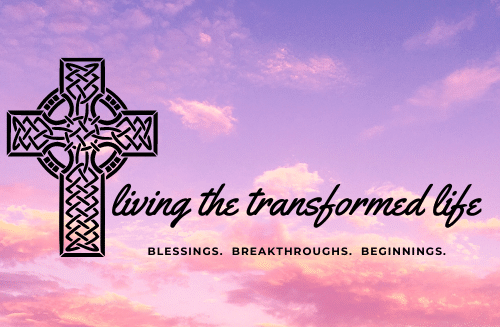There isn’t a person alive who hasn’t had that thought. We all have areas in our lives that we would like to see changed.
I recently read an interesting book called Change Masters: How to Actually Make the Changes You Already Know You Need to Make by Barry J. Moltz. It’s a book targeted for small business owners who need to make changes in their businesses, but much of what Moltz has to say is applicable to personal change as well.
So, why is it so hard to change? According to Moltz, “People only change when they are in so much physical, emotional, or financial pain that changing outweighs the fear of the unknown that change may bring.”
So the biggest motivator for change is pain, and the biggest obstacle is the fear of what change may bring.
After all, that which is familiar is usually comforting– and few of us really enjoy leaving our comfort zone. That’s why some people don’t change until they’ve hit rock bottom– until the pain is so severe they can’t stand it anymore. Desperation can be a motivating force.
Change often involves altering learned behavior. That’s really all habits are, you know– deeply ingrained patterns that have been learned by repetition. It’s not possible to “unlearn” what has been learned, but you can alter and replace habitual behavior.
“Any action moves you forward from where you are right now– which is the fundamental start of any change,” says Moltz. “Doing something breaks the habit of doing nothing and forces change.”
 Change Is Possible…But It Ain’t Easy
Change Is Possible…But It Ain’t Easy
Let’s talk about forming new habits. We all have times in our lives where we intentionally want to change our behavior for the better and create new habits for ourselves. This could be getting in the habit of eating healthier and drinking more water. Or it could be moving more and taking the dog for a daily walk. Or it could be work related, or spiritual, or… There are so many areas in our lives that could be improved and made easier if we created new habits.
Getting into the habit of doing something is often easier said than done. We seem to acquire bad habits without any effort. Getting into a “good” habit can be a little more challenging.
Scientists have learned a lot in recent years about how our brains work. Most exciting are the discoveries about neuroplasticity, the ability of neural networks in the brain to change through growth and reorganization.
Why is this so important? Moltz explains, “There are neurological reasons why people are resistant to change; biologically, our brains are not wired for change…Activities we do by rote are stored in the basal ganglia, the part of the brain that controls habits. They require less energy to execute and operate. Instinctively, we want to save energy wherever possible, so the body is free to do other essential things.”
In other words, God has designed the brain for efficiency. Sometimes, however, because of the bad choices we make, that efficiency can work against us. “Relying on repetition and the things we perceive as rules makes things easier for the brain, giving it less work to do,” says Moltz. “This means even if some of your habits are hurting you, your brain still resists changing them.”
Fortunately, though, God has already provided for that event. Thanks to neuroplasticity, new behaviors can create new neural pathways in our brains. The more you engage in the new behavior, the stronger those new neural pathways will become, gradually overriding the old pathways.
“Any time we learn a new habit, a new connection or neural pathway is formed in the brain,” Moltz explains. “As we repeat that habit, we use that neural pathway over and over. The task will become a habit as our brain prefers to use that quick and efficient pathway.”
 Steps to Change
Steps to Change
So, how do we form those new neural pathways and change our habits? Here are some practical steps you can take.
1. Decide what change you want to see. The first step is to decide what you want that new habit to be. Make it as specific as possible. Don’t just tell yourself you want to exercise more. Instead, say something like “I will go for a 20 minute walk every day.”
Habits will form faster if you stick to the same time and environment each day. Instead of going for a walk whenever, keep your sneakers next to the door and schedule your walk every day at 6pm, right after dinner, for example.
2. Remember your Why. Remind yourself every day that you’re exercising so you can have the strength to play with your grandchildren, for instance. Keep your “Why” front and center, and remember that in the end, all your efforts will be worth it.
Remembering your “why” will also help motivate you on the days when you may not feel like sticking with it.
3. Include some accountability. Let family and friends know what new habits you’re trying to establish. They will call you out if you don’t stick to your plan and get you back on track. Find someone with a similar goal and offer to partner with them. It’s easier to stick to a new routine if someone else is depending on you.
4. Schedule it and put it on your To-Do list. Make it part of your routine until it becomes a habit. Repetition will help to internalize that new behavior as those new neural pathways are formed.
5. Try habit stacking. Whenever possible, add the new habit to one you already have. For example, if you fix a cup of tea or coffee at 4pm, and you want to get in the habit of taking a daily walk, make the new ritual to go for your walk and then come back and enjoy your tea.
6. Take small steps, not giant leaps. “Changes are easier to make if they are specific, small, and incremental,” says Moltz. “To change, you need to start– somewhere. Almost anywhere will work. Remember, it’s hard to make big changes all at once. When examined closely, most significant changes begin as a series of small ones.”
 You’ll Never Walk Alone
You’ll Never Walk Alone
It’s tough to change– but if you are a Christian, you’ve got one huge advantage, because God is in the change business! You’ve got some wonderful promises in God’s Word. Here are just a few of them:
“Therefore, if anyone is in Christ, the new creation has come: The old has gone, the new is here!” (2 Corinthians 5:17). Real change comes from knowing Christ. You now have free access to the throne of grace. God can change those things you can’t.
“Do not conform to the patterns of this world, but be transformed by the renewing of your mind” (Romans 12:2a). Long before we knew about neuroplasticity, God’s Word revealed the importance of your mind. Change your thinking, change your life. Fill your mind with the things of God; meditate on His Word. Let His truth transform you.
“Therefore we do not lose heart. Though outwardly we are wasting away, yet inwardly we are being renewed day by day” (2 Corinthians 4:16). Change– renewal– starts on the inside. God has already begun a good work in you, so don’t give up!
“Remember not the former things, nor consider the things of old. Behold, I am doing a new thing” (Isaiah 43:18). God has forgiven your past– focus on what lies ahead, on the changes He’s working in you.
Last, but certainly not least, let’s remember Philippians 4:13, “I can do all things through him who strengthens me.” Never forget, He is strong when you are not. With God, all things are possible!
Yes, change is hard. But God, your loving Father, has blessings, breakthroughs, and new beginnings for you!
Has this blessed you? Share on social media– and subscribe!
Related Posts:
“Is A New You Really Possible? https://www.livingthetransformedlife.com/is-a-new-you-really-possible
“Renewing Your Mind With Scripture Writing” https://www.livingthetransformedlife.com/renewing-your-mind-with-scripture-writing


 Change Is Possible…But It Ain’t Easy
Change Is Possible…But It Ain’t Easy Steps to Change
Steps to Change You’ll Never Walk Alone
You’ll Never Walk Alone
Such great applicable advice!
Thank you. I want to let the world know that change is possible!
this was so encouraging to read. thanks for sharing
Glad it was helpful!